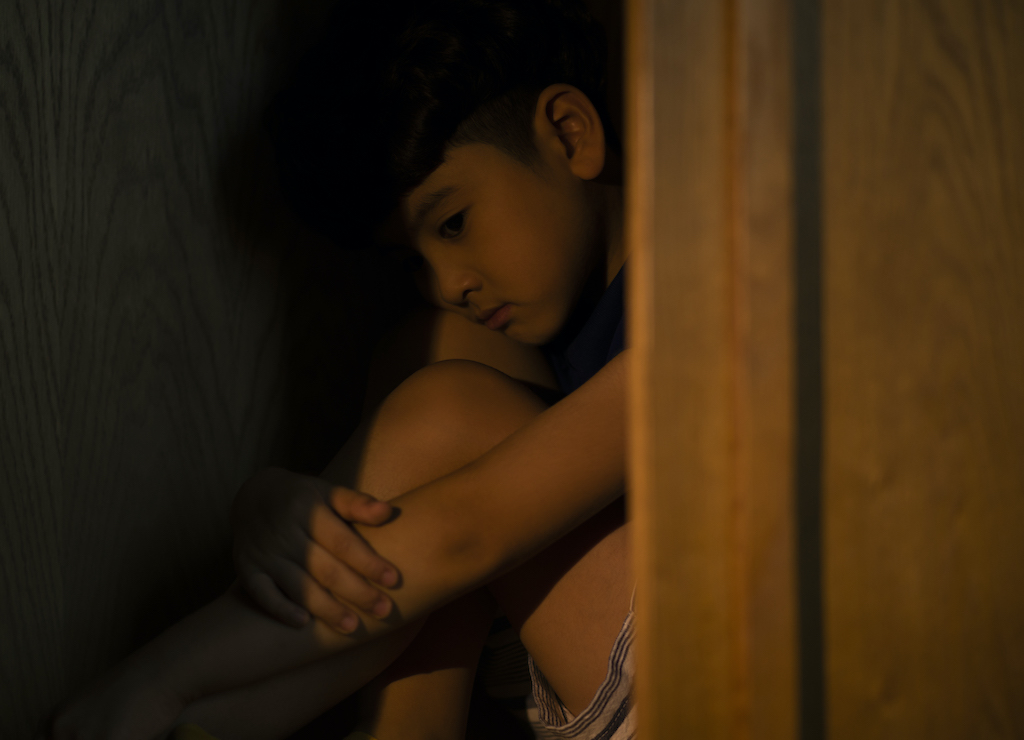SingaporeMotherhood | Parenting
November 2022
Why You Need to have Mental Health Conversations with your Children

Did you know that one in seven young people between 10 and 19 years has a mental health issue? Furthermore, that these mental health issues remain largely untreated? Adolescents are especially vulnerable to mental health issues, Dr Priyanka Rajendram, Assistant Director of Integrated Health Promotion at the Ministry of Health (MOH) Office for Healthcare Transformation tells us.
Studies also show the incidence of mental disorders peak during the transition from childhood to young adulthood, or adolescence. Up to one in five people experience clinically relevant mental health problems before the age of 25, with 50 per cent of them being symptomatic by the age of 14.
Colizzi M, Lasalvia A, Ruggeri M. Prevention and early intervention in youth mental health: is it time for a multidisciplinary and trans-diagnostic model for care?. International Journal of Mental Health Systems. 2020 Dec 14(1): 1-4.
This is because “adolescents go through intense hormonal changes and these can directly influence brain development… They feel emotions intensely but their rational-thinking capabilities are still developing. This makes them particularly sensitive to the judgement of people…,” says Dr Rajendram.

What is also worrying is that over the last decade, anxiety, depression, self-harm, and suicide among youth in Singapore have been steadily increasing. In 2017, mental illness was the largest contributor to years lost to disease among young people aged 10 to 34 years in Singapore, and the second largest overall contributor across all age groups. In 2018, the second Singapore Mental Health Study showed a significant association between younger age and mental disorders.
All this was revealed at the recent Temasek Shophouse Conversations: ‘Youth Mental Health: Opportunities and Challenges in a Digital World’. Obviously, mental health is an issue of concern, not just for adults, but for children as well. Dr Rajendram tells us more.
(See also: Do you have Parental Burnout?)
Why are adolescents especially vulnerable to mental health issues?
Adolescents go through intense hormonal changes and these can directly influence brain development. For example, hormones impact the circadian clock in teenagers. This causes them to stay up late into the night, and makes it difficult for them to wake up in the morning for school.
All these changes happen during a time of contradictions. Adolescents are seeking a sense of identity and demonstrating a need for independence. At the same time they need validation from their peers. They feel emotions intensely but their rational-thinking capabilities are still developing. This makes them particularly sensitive to the judgement of people within their immediate circle: parents, siblings, peers, and teachers.
(See also: Depression in Children: Spot the Signs and Seek Help Now)
Are some adolescents at higher risk for mental illness than others?

Many factors can affect the mental health of adolescents. The more risk factors they have exposure to, the greater the potential impact on their mental health. Adversity, peer pressure, exploration of identity, digital and social media influences, gender norms, can cause stress in young people. Global events such as climate change, economic downturns and pandemics can also exacerbate adolescent stress. Youths from ethnic minorities, households with low socioeconomic status and/or violent or abusive homes are also at higher risk of developing mental health issues.
How did COVID-19 impact the mental health of young people in Singapore?
The National Youth Council’s (NYC) poll released in the second half of 2021 showed that one in five Singaporean youths reported poor or very poor mental well-being during the pandemic. In the same year, the Samaritans of Singapore (SOS) reported an increase in suicide rates among youths aged 10 to 29 years — from 22.3 per cent in 2020, to 29.6 per cent in 2021. Deaths by suicide rose to 23.3 per cent for those aged 10 to 19 years in these years as well. The key stressors that led to the increase? Forced social isolation, financial stress and educational challenges brought on by the pandemic.
However, the spike in mental illnesses during the pandemic also offers clues on what drives the rise in mental health disorders among youth, especially mood and anxiety disorders. Over-reliance on social media and a lack of in-person socialisation were key triggers to declining youth mental health.
See also: “How are the Children?” (now that it’s been two years of COVID)
How does social media contribute to declining mental health in children?

Generation Z has been born into a digital world where social media is an inextricable part of their daily life. Their sense of identity and purpose is often closely intertwined with what they consume online. Almost 92 per cent of teens from aged 13 to 17 are online regularly. Up to 75 per cent of them have internet access on their mobile phones. Most teens spend at least nine hours a day on digital media, with about 24 per cent saying they remain online all day.
But social media on its own is not all bad. It is not like rat poison that affects everyone in the same way. It is more like alcohol in that it is mildly addictive, and can lead to unhealthy levels of dependency. According to an Instagram internal report, one-third of girls who were polled said that scrolling through Instagram made them sad, but that they just could not help logging in.
What can parents do to reduce/remove these barriers?
Parents play a significant role in terms of how they respond to, or frame mental health and mental illness. If they express embarrassment, shame, and prejudice towards mental illness, this prevents youths from reaching out for help.
Another factor is what I refer to as ‘accommodative parenting’. For example, if a child does not like dogs, the parents avoid visiting places with dogs. By doing this the child does not have to interact with dogs. However, the parents are taking away the opportunity for their children to learn how to navigate through uncomfortable situations and emotions. This is important as
a huge part of becoming a well-balanced adult is learning how to deal with, manage and release negative emotions. Equipping children with these tools and skills from a young age can help lessen the likelihood that they will struggle with mental health later in life.
See also: Why the Alternative to Tiger Mums is not “Laissez-faire Parenting” but “Attentive Parenting”
Where to Get Help
MindSG has resources on adolescent mental health and wellbeing.
Tinkle Friend Helpline (Tel: 1800-274 4788, Mondays to Fridays, 2.30–5pm) provides support, advice and information to primary school children in distress, especially when their parents or main caregivers are unavailable.
TOUCHline by TOUCH Community Services (Tel: 1800-377 2252, Mondays to Fridays, 9am–6pm) provides emotional support and practical advice for youth aged 12 to 25 years old on gaming addiction, Internet-related issues, and information on youth programmes.
Featured image: pachecopablo90 from Pixabay
All content from this article, including images, cannot be reproduced without credits or written permission from SingaporeMotherhood.
Follow us on Facebook, Instagram, and Telegram for the latest article and promotion updates.





